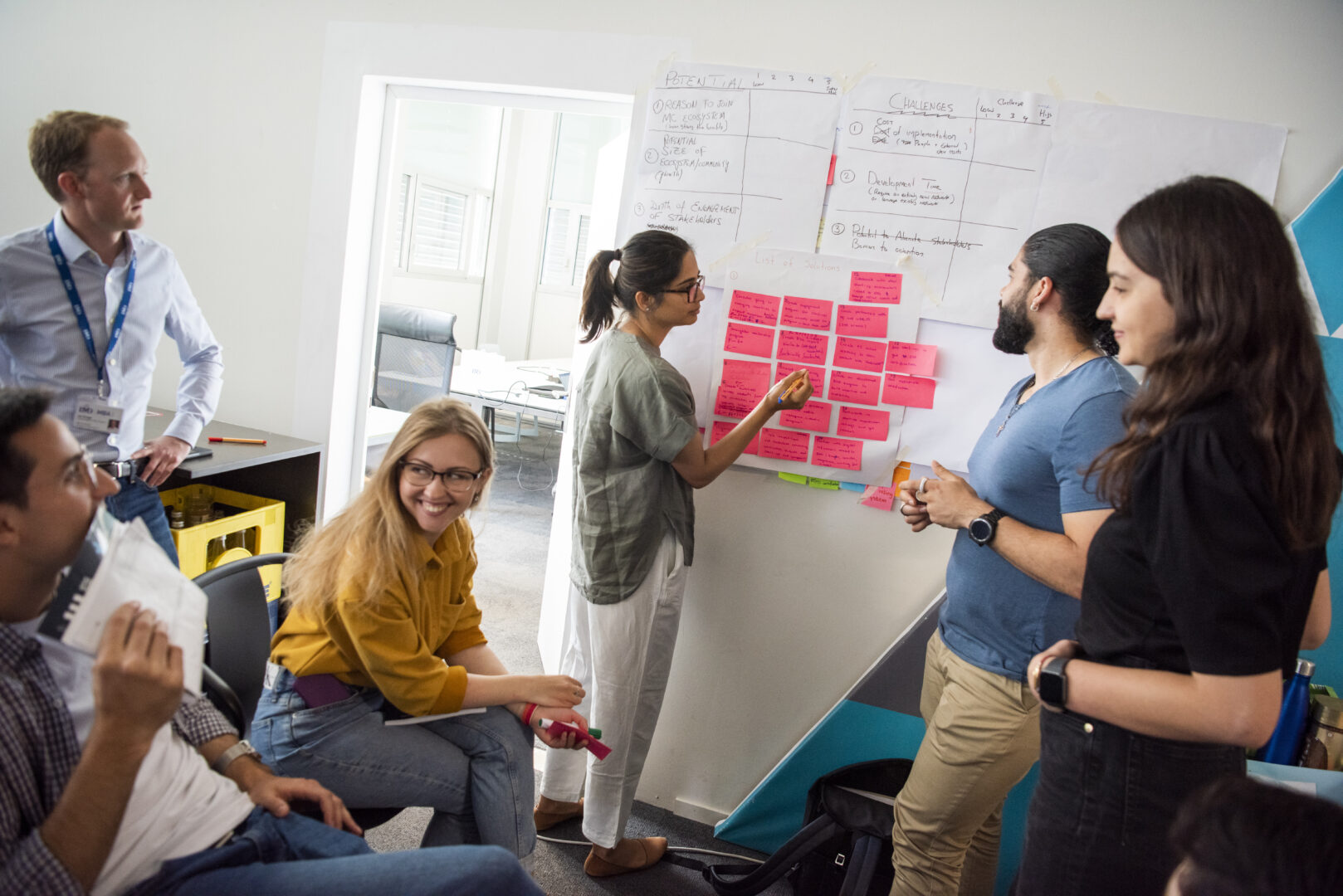
According to long-held wisdom, learners retain 10% of what they read, 20% of what they hear, and 90% of what they do. IMD’s innovation week was the latest element in the MBA program which set out to immerse students in action-based learning by answering the question: how can MassChallenge become the most climate-responsible climate accelerator?
Founded in 2009, MassChallenge is a non-profit organization dedicated to supporting innovation and entrepreneurship by helping startups polish their products and attract investors. The accelerator has set itself the ambitious goal of finding the 20 most impactful startups every year to mitigate climate change.
Board member of MassChallenge Switzerland Ian Roberts said, “To do this, we need to switch our model to help startups measure success using alternative KPIs to those we currently use – but also to assess them on climate and environmental factors.”
The 104 MBA students were divided into two cohorts. Each group was tasked with innovating on four challenges that MassChallenge is facing:
- The selection process: How can the process be redesigned to make it easier to identify sustainability-focused startups?
- Stakeholder contribution: How can experts be incentivized to contribute their expertise?
- Program content and support: How does the program need to be adapted to reflect its impact focus and provide the best support for startups?
- Impact measurement: How should startups measure impact? And how do you continuously measure impact from an accelerator’s perspective?
After a week of hands-on workshops, inspiring guest lectures and sessions putting their newly acquired innovation techniques like design thinking into practice, the MBAs honed their ideas and pitched them to a panel of five entrepreneurs, board members and sustainability experts.
Students praised the program’s effectiveness. Victor Kociok from Germany said, “A key takeaway for me was to trust the process. For innovation, you never know what is coming out of it – but when you put smart people in the room, you will get a result.”
Amanda Tan, a Dutch-Indonesian dual national, said the structure of the innovation week encouraged people to speak up and collaborate. She said, “This is the first time we have worked together as such a large cohort. It gave people a chance to try things with less pressure than if we were in smaller groups. It made people more willing to take risks.”
Among the proposals identified by the winning team were doubling the timeline of the program to eight months to provide more support, partnering with recognized external experts to boost MassChallenge’s green credentials, and gamifying program content to make it more active, for example by using virtual reality.
The panel assessed the cohort’s ideas according to how innovative and actionable they were and praised the winning team for coming up with impactful solutions that combined novel ideas with already existing solutions.
Professor of Sustainable Innovation and Business Transformation Julia Binder said, “We were incredibly impressed by the quality of this year’s pitches, but what I will remember most is the unparalleled team spirit and collaborative efforts of our MBAs. We gave students a highly complex challenge to organize themselves – and they came up with innovative solutions in less than a week.”


